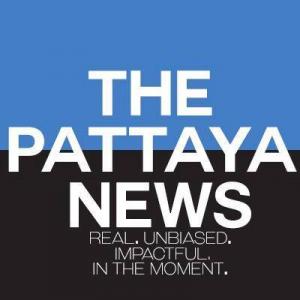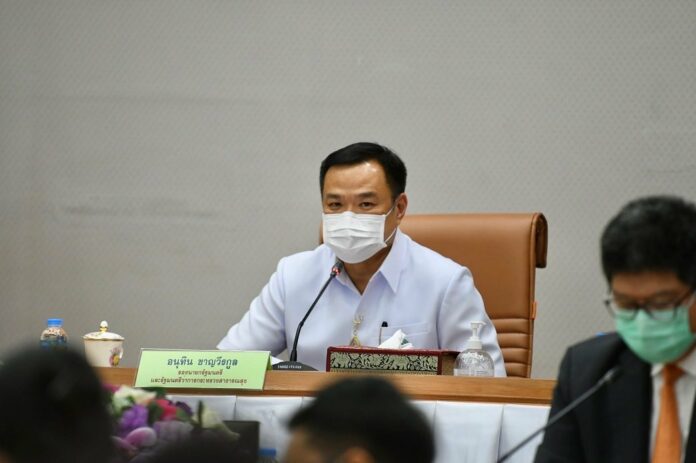It’s beginning to heat up in Thailand.
And, no, we aren’t just talking about the upcoming months that are the hottest of the year in the country, but rather about Covid-19 restrictions and an ongoing debate both behind the scenes and in public about when, how, and if Thailand should ease them.
First, I’m not going to give an opinion on what I think Thailand should do, or whether or not it is the right time to lift or ease restrictions. We’ll leave opinions and debate over this to the comment section, as I want to stay neutral in this regard.
What we will touch on in this article, however, is spell out the current pressure on the government from multiple directions to ease or even lift the restrictions but also cover the concerns and cautions of those opposed to doing so at this time and where Thailand stands. This should allow readers to have a pretty good idea of the concerns and arguments on either side. We won’t pretend to list every single argument and concern, just some of the most prominent ones.
We are specifically talking about mainly the international travel restrictions for the purpose of this article, such as the current Thailand Pass system to enter the country and multiple tests required. We aren’t going to detail this in-depth here, however, click on this text if you are not completely familiar with the current program to get a refresher. We will also touch on a few other restrictions of concern to at least some visitors, such as a legal closure of bars and entertainment (converted to “restaurants”) and mask mandates still in place, including outdoors. We aren’t going to touch too much on the Emergency Decree here, which is also still in place and various critics of the decree also want lifted.
In the past few days, prominent airline representatives like the head of AirAsia, hotel industry executives including the Thai Hotels Association and William Heinecke, head of Minor International PCL, and multiple tourism, entertainment, hospitality, retail, and other organizations and associations have written letters and met with top Thai Government officials such as Public Health Minister Anutin Charnvirakul to request Thailand to “ease” or even lift current restrictions around Covid-19, especially international travel restrictions.
Their reasoning for easing the restrictions, despite continued daily high in Covid-19 cases, is that, according to them, deaths and serious cases, such as those on ventilators or with pneumonia, remained very low and steady and were mostly those already ill or with pre-existing conditions. Several associations pointed to Thailand’s vaccination rate of 71% and the fact that the program was continuing along steadily and that in some tourism areas (Including Chonburi) vaccination levels were as high as 90% with booster programs ongoing.
Another point brought up in the petitions, meetings, and letters of various business and tourism leaders was that many other countries were either opening up or had already opened and Thailand risked being “left behind” as a result. They stressed that Omicron appeared to be, according to their statement, milder than previous variants and most people had mild to asymptomatic symptoms. (According to the Thai DDC, about 90%)
Anutin Charnvirakul, meanwhile, stated that the proposals would be “considered” by the Department of Disease Control and the Center for Covid-19 Situation Administration (CCSA), however, also stressed that “balance” had to be made between public health and the economy. He has continually erred on the side of the caution and been especially negative on requests to legally open Thailand’s nightlife industry, closed since April of 2021 and currently in a “grey status” area of being called restaurants but with various restrictions like bans on dancing and early closing times.
The concerns of the CCSA on keeping the restrictions that have been made public were various factors, such as concern on vaccination rates in rural provinces and areas, elderly populations in these areas, and hospital capacity. Some doctors have also brought up concerns on infrastructure and long covid, which admittedly is still an area that needs much more research. Indeed, I note, the reaction to how Covid is treated by leaders is night and day depending on where you go in Thailand.
For instance, in Nakhon Ratchasima this week, home of Korat, hundreds of schools have been closed for in-person learning (70% of the ones in the area), rural villages completely locked down and closed off, businesses shut, and other strict measures as the area deals with a rise in Covid-19 cases, which prior to now they had never had a serious issue.
Meanwhile, so-called “BLUE” (Business, Leisure, Ultimate Experience) tourist zones, which is where the majority of tourists in the country visit, like Pattaya and Phuket, and even Bangkok, have hundreds, even thousands (Bangkok) of Covid-19 cases a day, and yet nearly nothing is closed, there is no sense of panic or fear like many rural areas, and life goes on. These provinces and areas, that were among the first to open to foreign tourists, have become “used” to Covid-19 and indeed many of the business associations that are pushing for a “full opening” are based in these provinces and cities. Indeed, Covid-19 swept through many of these areas in December and early January.
The provinces, like Tak, who share porous borders with other countries and have thousands of illegal migrants stream through with no checks or precautions have also become “used” to Covid-19 for the most part.
But the same cannot be said for much of the rural Northeast of Thailand, as well as Central Thailand, which was largely spared from high numbers of cases throughout the pandemic and now faces for the first time a high amount of Covid-19. These areas, with a robust volunteer health force but limited to serious hospitals and medical care, have significant concerns about Covid-19, which is continually referenced by the DDC and CCSA.
Regardless of that, say critics of the current restrictions, the virus is already here and migrants continue to stream in illegally with no checks at all.
The next CCSA meeting is likely to be at the very end of next week and rumors are already flying-but they are just that, rumors and speculation. Thailand has, for the most part, erred on the cautious side, perhaps overly so, the entire pandemic and that shouldn’t be expected to end any time soon say some.
That being said, Thailand is also ending its Universal Coverage for Emergency Patients in March (read more here), Pattaya is holding its first major event since New Year’s Eve with a month-long music festival every weekend, and Songkran, Thailand’s biggest holiday and huge tourism attraction is approaching quickly in the middle of April…although the CCSA has yet to make any public decisions about what will or will not be allowed for the normal wild water fights and festival which for the last two years was either canceled or “toned down” to only religious and ceremonial events, at least officially.
In the recent letters from business leaders and tourism heavyweights, many also stressed they want to see the country relax nearly totally in March so that tourists could feel confident to visit Songkran in April, both domestic and foreign, normally one of the busiest weeks of the year for the tourism industry. (Although not beloved by many ex-pats, who have already told us here at TPN media that some would prefer it to be canceled again, at least the water fight part.)
A few other things that may directly (or indirectly) affect the decisions to be made are major elections on the horizon for Pattaya and Bangkok for Mayor and Governor in May, the same month Saudi Arabian tourists will be allowed to visit for the first time in decades. Pattaya is already gearing up to welcome Saudi Arabian tourists. Online, as mask mandates are eased in many Western countries (especially outdoors) complaints on Thailand’s mandates (but not law, although they can be enforced under emergency decree measures, which by the way is a WHOLE different story) on mask-wearing continue to draw anger and frustration from foreign tourists.
One last thing, locally in Pattaya, dozens of business and tourism associations are working on a daily basis with the Thai Tourism Authority, CCSA, and relevant agencies to lift the legal ban on bars and nightlife and allow Pattaya to truly “reopen” again with its former late-night hours and full entertainment offerings, which would, according to them, bring thousands of more jobs and significant amounts of foreign tourists back to the city. They state that the continued “no eta” date from the government for legal opening of nightlife is unacceptable and there needs to be a set roadmap.
If there is one thing that is constant here in Thailand, it is change comes quickly and decisions can be overturned fairly fast. We will keep a close eye on everything happening and, as always, deliver to you the unbiased, neutral, factual take on what will happen.
Stay tuned, it could be an interesting week or two ahead as Thailand weighs how to balance restrictions vs. health.
Adam Judd, TPN Media
February 18th, 2022




